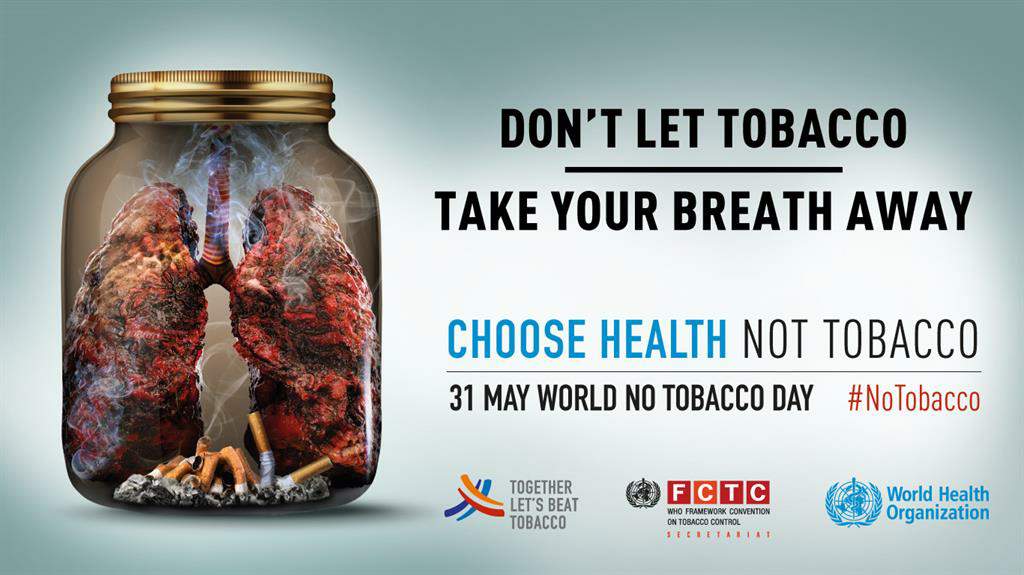
Inhale, exhale, breathe in, breathe out – what takes your breath away? Is it a moment, an activity, a feeling?
Unfortunately, for far too many people the answer to that question is tobacco. According to the World Health Organization (WHO), tobacco kills more than 8 million people each year across the globe, with around 1.2 million of those deaths a result of non-smokers being exposed to second-hand smoke.
Today is World No Tobacco Day and the focus is on tobacco and lung health, highlighting the negative impact that tobacco has on people’s lung health, including children; and the fundamental role lungs play for the health and well-being of all people, everywhere.
Tobacco goes far beyond an issue of health – it places a tremendous burden on countries least equipped to respond to tobacco-related illness and death.
Of the world’s estimated 1.1 billion smokers, around 80 per cent live in low- and middle-income countries. When a tobacco user becomes ill or dies prematurely it impacts development efforts, in particular, by diminishing resources within families, reducing workforce productivity, and raising costs of health care.
The Sustainable Development Goals (SDGs), in its global efforts to leave no one behind, recognises this with targets of a one-third reduction in non-communicable disease (NCDs) premature mortality; and strengthening the implementation of the WHO Framework Convention on Tobacco Control in all countries.
Across the world, NCDs – mainly cancer, cardiovascular disease, chronic respiratory diseases, and diabetes – are the leading cause of death, and tobacco plays a dominant role in this, responsible for around 22 percent of cancer deaths alone.
For the SDGs to be achieved by 2030, tobacco control must be a priority for governments and communities worldwide.
The Director of the Department of Health in Tokelau and McCabe Centre Alumna, Silivia Tavite, explains NCDs are impacting her community and the lifestyle of the small group of islands in the Pacific, where NCDs are responsible for 80 per cent of all deaths.
“NCDs are really affecting our community, our lifestyle. Our tobacco control policy was endorsed in 2016 with a target that by 2020, Tokelau would be smoke-free.
“They [government] made the decision in 2016 with no hesitation to accept the policy because we put the life of children at the forefront; we took the secondary smoking of our children as the main issue we focused on when we were presenting the policy,” says Silivia.
WHO estimates that each year 65,000 children die from illness attributable to second-hand smoke and almost half of children regularly breathe air polluted by tobacco smoke in public places.
“It’s a long process but I hope that Tokelau will continue on the current pathway and at the rate we have come so far," says Silivia.
For the world to achieve the SDGs and ensure no one is left behind, the health and well-being of all children, everywhere, must be protected from the harmful effects of second-hand smoke. Don’t let tobacco take your breath – or others’ – away.
This World No Tobacco Day, WHO is running a social media campaign asking people to share their favourite breathtaking moments and activities on social media – find out more and get involved.